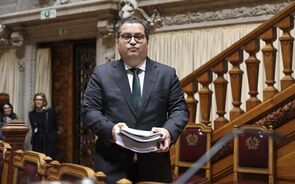Zapatero in State of Denial
1 Mensagem
|Página 1 de 1
Zapatero in State of Denial
Se fosse só o Sapateiro estávamos nós bem...
Zapatero's State of Denial Will Be Felt Far Beyond Spain as Pain Spreads
Greece is the sideshow, a warm-up act. Spain is the main event, the country that will have a huge impact on the future of the euro and on whether a new governance system will be put in place to control euro-zone members' budgets. The pain in Spain will fall, well, just about everywhere. That's why key figures from the world's financial institutions converged on Madrid late last week.
Spain matters because its economy is the euro zone's fourth largest, four times larger than Greece's. In the words of Goldman Sachs economists, if Spain were to experience a real financial fiasco, "the degree of cross-border financial exposure for the entities based in the larger euro-area economies would multiply dramatically." Spain's banks are already frozen out of interbank loan and capital markets, and are now the European Central Bank's largest customer. Last month they borrowed €85.6 billion ($105.9 billion) from the lender of last resort, up from €74.6 billion in April. Spain's banks account for roughly 10% of the euro zone banking system, but account for 16% of all net euro-zone loans. Next stop, the €440 billion European Financial Stability Facility, created by the euro zone powers-that-be as part of a €750 billion rescue package aimed at reassuring markets that there will be no defaults.
The need for a bailout is hotly denied by all of the players in this financial drama. A U.S. Treasury delegation joined International Monetary Fund head Dominique Strauss-Kahn in Madrid to meet with Spanish Prime Minister José Luis Rodríguez Zapatero and key government officials in what was represented as a rather routine, long-scheduled affair to discuss growth prospects over the next decade. European Council president Herman Van Rompuy stressed the "normality" of the meeting. No emergency measure was even discussed. Speculators and others circulating rumors that the EFSF is preparing a €250 billion rescue package are tilting at windmills.
The markets remain appropriately skeptical, nervous that the premium that Spain has been paying over safe(r) German bunds will balloon when it taps the debt markets for some €50 billion over the summer. Even more important, with Spain's government in no position to help its banks, failures would rain pain throughout Europe and on the U.S. and Britain. Miguel Ángel Fernández Ordóñez, governor of the Bank of Spain, hopes to calm the financial waters by releasing the results of the stress tests some of Spain's banks have undergone. He claims these will show that the nation's banks are adequately capitalized to withstand defaults by over-borrowed construction and property companies, and individual mortgagees. Markets are not reassured: the tests are confined to a handful of banks, and contain not very stressful assumptions.
New data from the Bank for International Settlements reveal that banks in the euro zone have a $1.58 trillion exposure to Greece, Ireland, Portugal and Spain, of which $727 billion is exposure to Spain. German and French banks carry 61% of euro-zone exposure, most of it exposure to private borrowers. So the EFSF is really aimed at easing the pain of Europe's banks. The argument that it is designed to help the euro zone nations, says Cantor Fitzgerald, "is to treat all the citizens of Europe and the wider world like naïve fools. It was cobbled together to help the leading banks of Europe who are heavily exposed to weak sovereign debt."
German Chancellor Angela Merkel might hate the idea of saving Spanish banks, but she knows that the bell that might toll in Madrid will reverberate in Berlin. She knows, too, that the day of complete sovereignty over national budgets is over in the euro zone. Jean-Claude Juncker, president of the council of euro-zone countries, was overstating things, but not by much, when he announced, "Too many countries amongst the 16 members behave like national economies, but national economies no longer exist; we are in an economy crowned by the common currency."
The good news is that there now is widespread recognition that Spain will not prosper unless it reforms its labor market, which it has started to do by making it less expensive to fire workers, a sure way to encourage hiring.
Meanwhile, spare a tear for Mr. Zapatero. The European Central Bank is telling him the only sure route to economic growth is austerity. President Barack Obama will use the G-20 meeting later this week to argue that stimulus, not austerity, is the key to prosperity. Mr. Zapatero needs the ECB and its bail-out facility more, right now, than he needs Mr. Obama.
As pessoas são tão ingénuas e tão agarradas aos seus interesses imediatos que um vigarista hábil consegue sempre que um grande número delas se deixe enganar.
Niccolò Machiavelli
http://www.facebook.com/atomez
Niccolò Machiavelli
http://www.facebook.com/atomez
1 Mensagem
|Página 1 de 1


